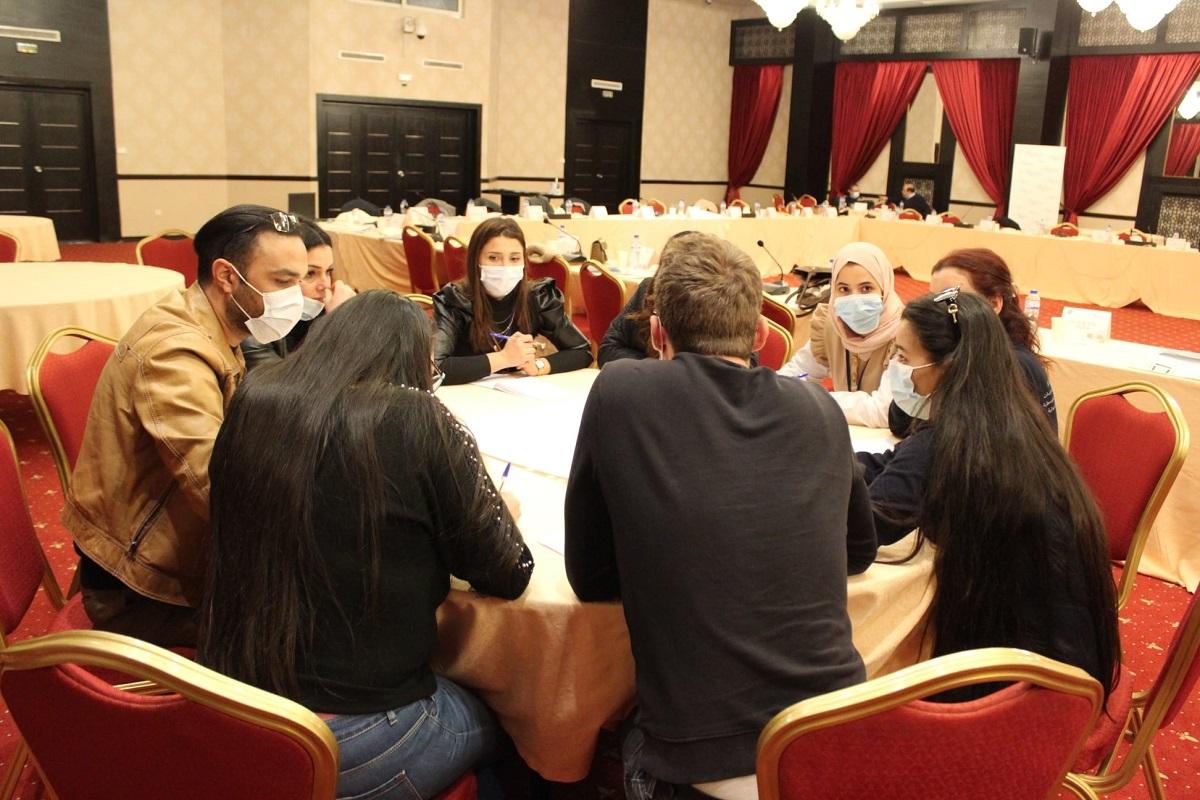In 2011, the Tunisian School of Politics (TSoP) opened its doors for the first time. Run by our Tunisian partner, the Centre des Études Méditerranéennes et Internationales (CEMI), with support from Demo Finland and the Netherlands Institute for Multiparty Democracy (NIMD), it would be a platform for young politicians, keen to develop knowledge, skills and networks to help them contribute to their country’s new democracy.
To celebrate more than 10 years of working together, we asked CEMI Director, Ahmed Driss to look back on the first days of TSoP and how the school has evolved over time.
By Ahmed Driss
The TSoP programme kicked off at a time of great hope and optimism. Looking back, I still remember the real revolutionary vibes. The atmosphere was full of energy and I felt as though I was breathing fresh air for the first time in a long while. I felt free and hopeful.
It was this shared feeling of freedom and democracy that inspired the TSoP programme. The wave of optimism sweeping the country brought together people from different backgrounds and political parties. They were united by their hopes for an inclusive democracy, and enthused to learn democratic skills and values to help them become effective enablers of change.
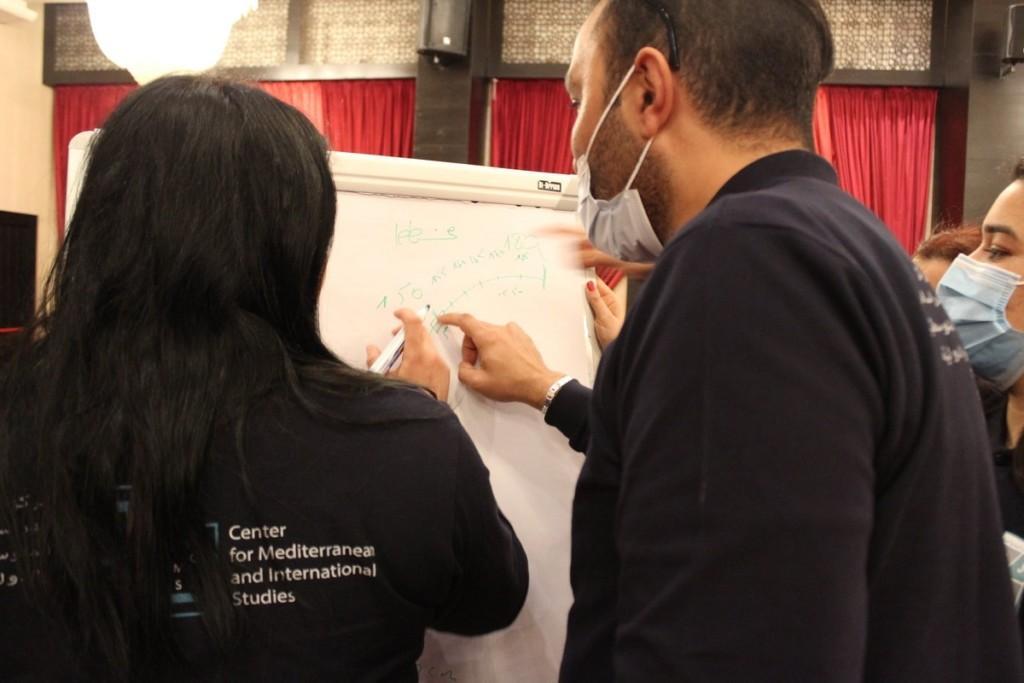
The first days of TSoP
We started the Tunisian School of Politics to respond to this new enthusiasm. With support from NIMD and Demo Finland – who also shared their expertise in training politicians and engaging political parties – we set up the first class.
We started with 40–45 participants from the parliamentary political parties. The first sessions were a mixture of hope and tensions: hope for a better democratic country, and tensions between the participants. Most of them had never worked with people who did not share the same ideology. As dialogue and tolerance weren’t anchored in our culture at that time, there were some challenges.
But these challenges faded as the participants got to know each other. By listening to each other and working on a common goal, they slowly built interpersonal cross-party trust.
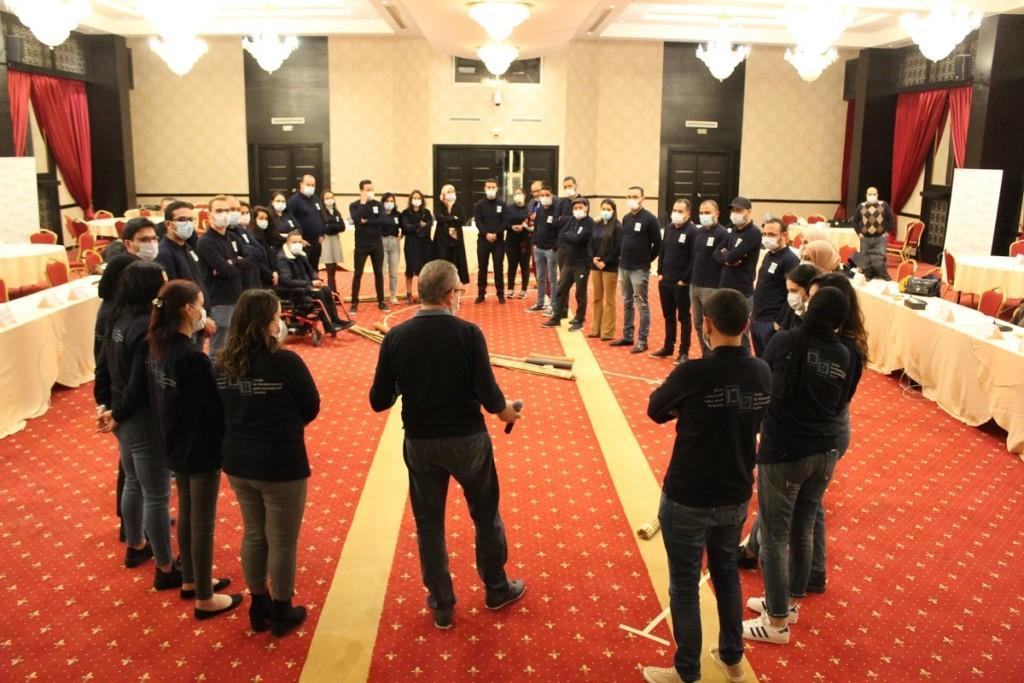
As the School became more established, its values of inter-party co-operation and dialogue also became better understood. And TSoP started to grow. Year after year, young people from different political parties were more and more interested in the training cycles. We started off with one or two classes per year. We now offer more than seven classes, for both young people and more established politicians.
Adapting to changing circumstances
But, even while TSoP grew in prominence, the optimism we shared as a country did not last. Inclusive democracy started to feel like a far-off ideal, as the space to express yourself through politics started to shrink in Tunisia.
As the political crisis hit our country, we realised we would have to focus on keeping that democratic space open. We increased our focus on dialogue in all our activities, which gave more space to discuss democratic values.
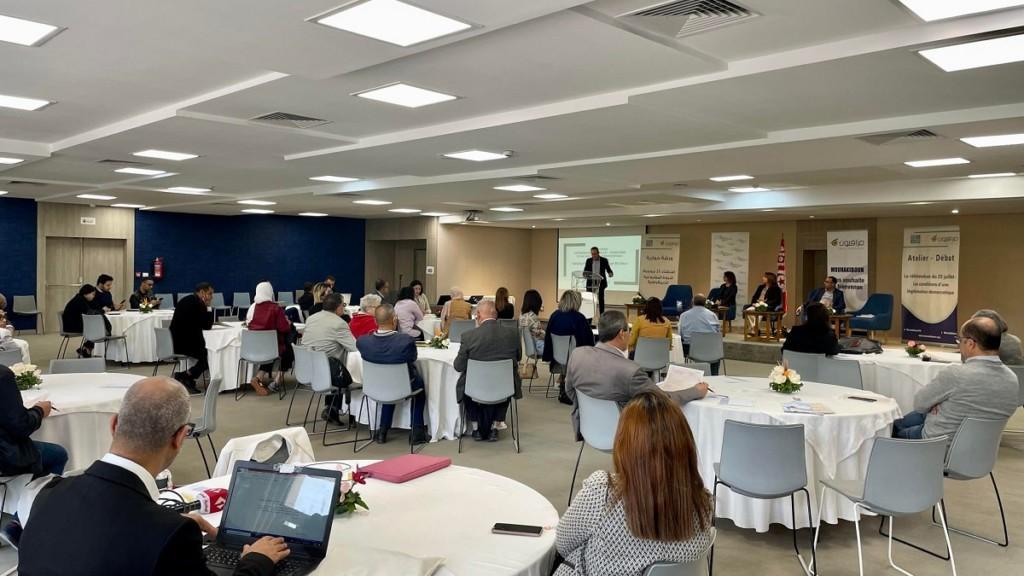
We also organised more dialogue activities to highlight the importance of respectful dialogue between all different actors. And we started the TSoP Academy for future parliamentarians for TSoP alumni who want to run in the next legislative elections.
As part of all this, we have redoubled our efforts to engage with young people – they have an important voice in supporting and defending democratic values. We have created a new dialogue initiative for youth, which brings together TSoP alumni (from political parties, CSOs and non-organised youth). The platform provides a safe space to freely express and discuss their point of views. It gives them a supervisory role over new measures, especially the ones related to democratic values, freedoms and rights, and of course a suggestive role so they can participate in the decision-making process and political and public affairs in general.
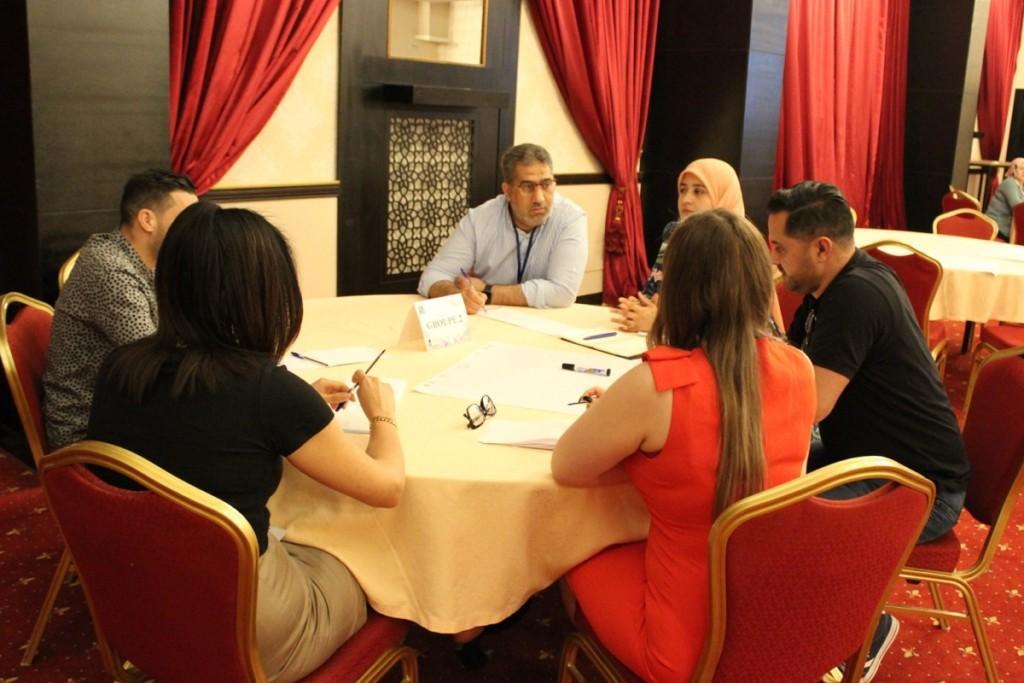
Looking ahead
Despite all the challenges facing my country, I consider our work with TSoP to be a success. The future is related to youth, and TSoP is helping the new generation of politicians to develop more inclusive and efficient political programmes and visions. As the only programme in Tunisia working equally with all political actors, we have been able to adapt and continue striving to make all voices heard, even in exceptional circumstances.
And, after more than 10 years, we are proud to be connected to a large network of more than 1000 alumni, who hold different points of views and visions, and who we can continue to support through our training cycles and dialogue activities. They will be critical in the future of Tunisia’s democracy, and we owe it to them to continue to build and defend the democratic values they have come to know.
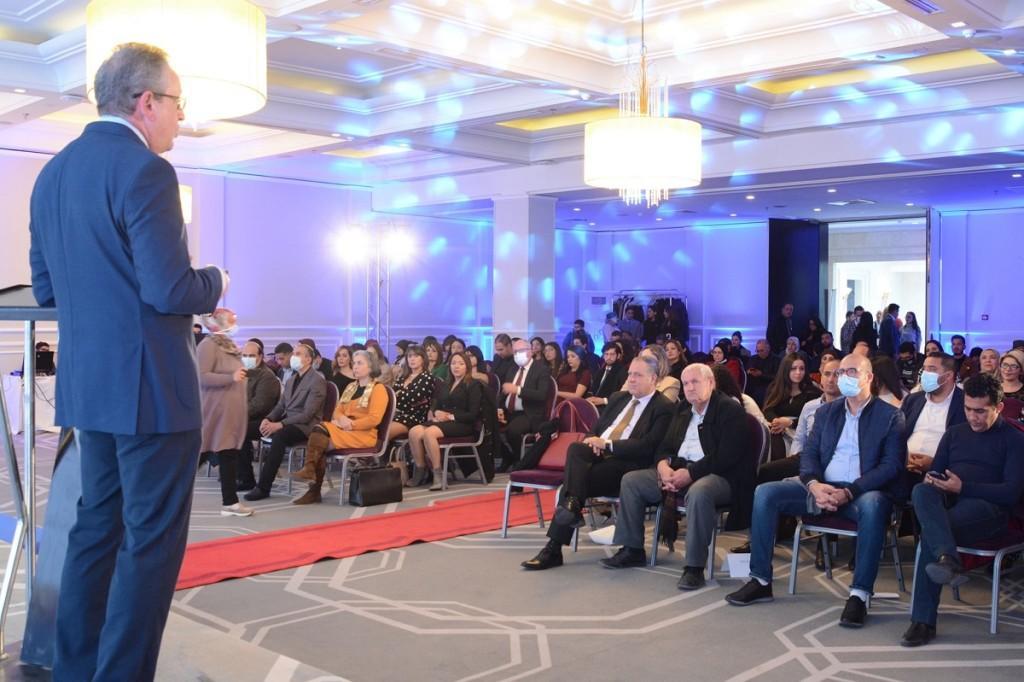
Tunisian President Kais Saied has decreed a national referendum for July 25 on a new draft constitution, to replace the 2014 constitution.
This article was originally published on NIMD’s website.

